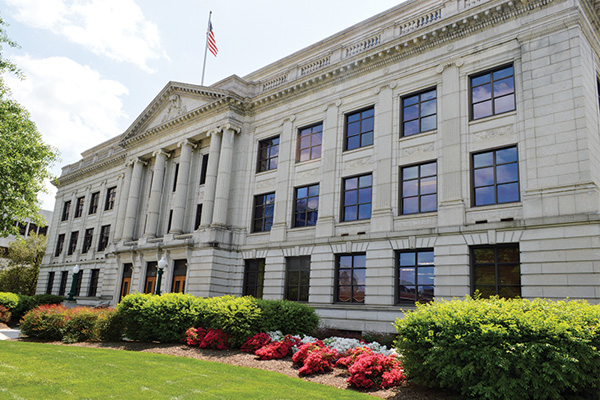Guilford County has been hit with a $425,000 legal bill that the commissioners have reluctantly agreed to pay.
And it seems ridiculous that the county should have to pay, because it is being forced to pay the legal expenses of the Southern Coalition for Social Justice (SCSJ) for successfully suing the Guilford County Board of Elections for an action taken by the North Carolina General Assembly.
The US Fourth Circuit Court of Appeals ruled that Guilford County had to pay, but the court also made the difficult-to-understand ruling that allowed Guilford County to be sued for something it didn’t do.
So the case begins and ends with the Fourth Circuit Court of Appeals.
It was a Fourth Circuit Court decision in a previous case that allowed the SCSJ and the City of Greensboro to file suit against Guilford County alleging, among other things, that the Greensboro City Council districts drawn by the state legislature were unfair to minority voters.
Guilford County Attorney Mark Payne petitioned the court to require that the state legislature be included in the case, but US Middle District Court Judge Catherine Eagles ruled that based on the Fourth Circuit decision, the state could be included but the court could not require that the state be included.
Guilford County formally requested the North Carolina attorney general to represent the state in the case, but the attorney general declined. Guilford County did not formally request assistance from the state legislature, which passed the redistricting law that was being contested.
So Guilford County was left to go it alone, and it turned out to be a strange trial because, while Payne was in court representing Guilford County, he hardly said a word, until the trial was over.
Payne said that, because he was representing the Guilford County Board of Elections in a lawsuit to determine how the next City Council election would be held, in his opinion it would have been improper to take a position either for or against the state redistricting statute.
Payne said, “Taking a position would have made it impossible to do our statutory job to hold free and fair elections.”
He said, “I think it was impossible for us to take sides on how an election should be held before it is determined what the law is. I don’t think it was legally possible for us to take a position.”
The result of that decision was that Payne sat in court every day representing the defendant, the Guilford County Board of Elections, but he only spoke when asked a direct question by Judge Eagles. Even if your only experience in court comes from watching television, you know that attorneys are always popping up objecting to something.
And after an attorney is finished questioning one of their witnesses, the opposing attorney gets to cross examine that witness, often attempting to discredit their testimony.
In this case, because Payne determined that to take sides in the case would inhibit Guilford County’s statutory duty to hold fair elections, there were no objections. There was no cross examination and there were no witnesses put on by the defense.
There wasn’t much doubt about who was going to win such a one-sided case. The SCSJ and the City of Greensboro won and the districts drawn by the state legislature were thrown out.
The City of Greensboro waived its right to legal fees, but SCSJ did not.
The federal law says the judge “shall” award attorneys fees except in a case where that would be “unjust.”
During this portion of the trial Payne did speak, arguing that forcing Guilford County to pay the legal fees when it was being sued for something it had nothing to do with and where it was unable to defend itself was “unjust.”
Eagles ruled in Guilford County’s favor. But it is not surprising that the Fourth Circuit overruled that decision because it was the Fourth Circuit ruling that put Guilford County in that untenable position.


Mr. Hammer,why was the name of the law firms receiveing the $450,000 from Guilford County not mentioned in your Rhino Times story ?
Everybody ran for cover and Guilford County got hit with the pie. Apparently we do not have many friends in Raleigh.